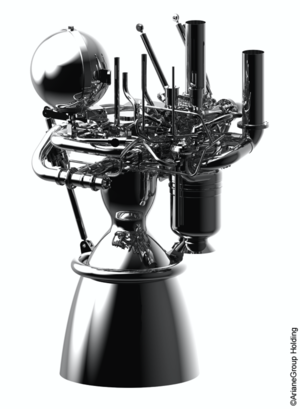Call for ideas on navigation demonstrators and technologies
Do you want to help shape the future of European satellite navigation? ESA is issuing an open call via OSIP for companies and researchers to help identify future navigation demonstrators and disruptive technologies that will shape the landscape of satellite navigation in the coming decades.
Global navigation satellite systems (GNSS) are essential in our daily lives, and their use is rapidly increasing together with a growing need for more resilient and ubiquitous services. Today, Europe is at the forefront of satellite navigation thanks to EU programmes EGNOS and Galileo, with ESA leading their design and development.
To ensure continued leadership, the agency would like to draw on the competence and experience available in Europe, engaging all players in the field to shape the future of navigation.
ESA is issuing a Request for Information (RFI) to gather input on future navigation demonstrator missions and supporting R&D activities, with the goal to accelerate innovation and define and validate new system concepts. The purpose of the demonstrators is to de-risk new disruptive technologies that hold great promise before introducing them into operational programmes.
The RFI will not only help ESA Navigation to identify impactful activities that will drive the future of navigation, but also boost European industry competitiveness, stimulate the development of future user applications and motivate the standardisation of new technologies.
What are we looking for?
The purpose of this RFI is to:
- Gather information on the demonstrators already identified by ESA, with feedback from responders on their interest and competence to address the related system development and technologies. The preliminary and non-exhaustive portfolio of candidate in-orbit demonstrators can be found in the OSIP platform.
- Identify new demonstrators of disruptive technologies and system concepts for validation in the period 2025-2028.
- Identify specific system studies and research and development activities on disruptive technologies in preparation for future demonstrators on ground and/or in space.
Emphasis should be placed on demonstrating technologies and solutions that have a clear impact on PNT users and services. These are some priority areas:
- Resilience, robustness and autonomy against disruptions and interference
- Optical technologies for application to PNT upstream infrastructure
- Quantum sensors to attain a higher level of accuracy and autonomy for PNT
- Integrated navigation and communication, with focus on 5G, 6G and Internet of Things (IoT)
- 5G/6G NTN solutions that leverage the capabilities of satellite and terrestrial networks to deliver enhanced communication and positioning services globally
- Navigation Payload Disruptive Technologies to enhance flexibility
- Machine Learning/Artificial Intelligence to support new capabilities, system autonomy and automation
- New integrity concepts and new signals for new navigation bands
- System preparatory studies in support of PNT needs for Earth infrastructure and space exploration, Moon and beyond
Eligibility criteria, schedule and process
This RFI is open for submissions from industry, research institutions and interested parties from one of ESA’s Member States, Associate Member States or Cooperating States. Participants should have relevant heritage or interest to expand their portfolio in the above-mentioned areas.
Respondents are kindly asked to provide a notice of intent no later than 15 August*, after which a clarification phase will take place followed by the first submission deadline on 15 September. The RFI will be open until the end of October.
*UPDATE: For respondents who did not submit their notice of intent yet, the deadline has been extended to September 15 for both the note of intent and the preliminary proposal.
Ideas can be submitted via ESA’s Open Space Innovation Platform (OSIP), which also provides full details on timing and process.















 Germany
Germany
 Austria
Austria
 Belgium
Belgium
 Denmark
Denmark
 Spain
Spain
 Estonia
Estonia
 Finland
Finland
 France
France
 Greece
Greece
 Hungary
Hungary
 Ireland
Ireland
 Italy
Italy
 Luxembourg
Luxembourg
 Norway
Norway
 The Netherlands
The Netherlands
 Poland
Poland
 Portugal
Portugal
 Czechia
Czechia
 Romania
Romania
 United Kingdom
United Kingdom
 Slovenia
Slovenia
 Sweden
Sweden
 Switzerland
Switzerland


























